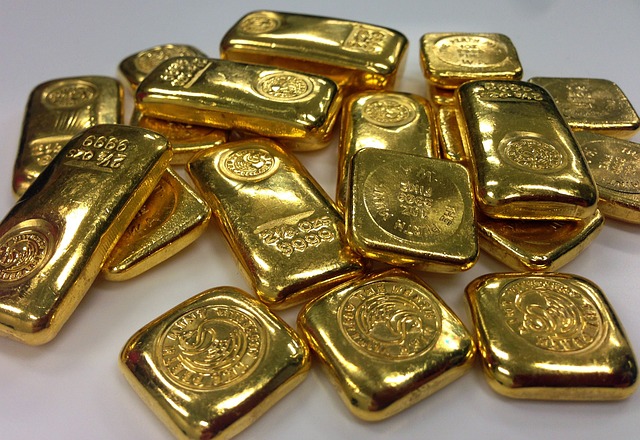Introduction
As the global economy continues to evolve, investors are increasingly seeking alternative assets to diversify their portfolios. One such option gaining popularity is converting Individual Retirement Accounts (IRAs) to gold. This article will delve into the concept of converting IRAs to gold, exploring its significance, historical context, and practical applications.
Understanding How-to-Convert-IRA-to-Gold
Converting an IRA to gold involves liquidating a traditional or Roth IRA and reinvesting the funds in physical gold or gold-backed assets. This process is not without its challenges, as investors must navigate complex tax implications, regulatory hurdles, and market fluctuations. The core components of converting an IRA to gold include:
- Identifying eligible IRAs: Investors must determine which types of IRAs are eligible for conversion, including traditional, Roth, SEP-IRA, or SIMPLE IRA.
- Valuing the IRA: Determining the value of the IRA and calculating the taxes owed on the distribution.
- Choosing a gold investment vehicle: Selecting a suitable gold-backed asset, such as coins, bars, ETFs, or mutual funds.
- Executing the transaction: Liquidating the IRA and reinvesting the funds in the chosen gold asset.
Historically, converting an IRA to gold has been a niche strategy, but it’s gaining popularity as investors seek shelter from market volatility and inflation.
Global Impact and Trends
The global influence of converting IRAs to gold is multifaceted:
- Regional trends: Investors in countries with high inflation rates or economic uncertainty are more likely to consider alternative assets like gold.
- Central bank policies: Central banks’ monetary policies can impact the value of gold, making it a attractive hedge for investors.
- Global financial crises: Events like the 2008 global financial crisis have highlighted the importance of diversification and alternative assets.
Economic Considerations
Converting an IRA to gold is not without economic implications:
- Market dynamics: Gold prices are influenced by supply and demand, interest rates, inflation, and currency fluctuations.
- Investment patterns: Investors may be more likely to convert IRAs to gold during market downturns or as a hedge against inflation.
- Economic systems: Converting IRAs to gold can be an attractive strategy for investors seeking to diversify their portfolios and protect their wealth in uncertain economic environments.
Technological Advancements
Recent technological advancements have improved the ease of converting IRAs to gold:
- Online platforms: Online brokerages and robo-advisors now offer direct access to gold-backed assets, streamlining the process.
- Digital currencies: The rise of digital currencies like Bitcoin has increased awareness and acceptance of alternative assets.
- Gold ETFs: Exchange-traded funds (ETFs) tracking gold prices have made it easier for investors to gain exposure to the metal.
Policy and Regulation
Regulatory frameworks surrounding IRA conversions to gold include:
- IRS guidelines: The Internal Revenue Service (IRS) provides guidance on IRA distributions, including those related to converting IRAs to gold.
- FINRA regulations: Financial Industry Regulatory Authority (FINRA) rules govern the sale of securities and insurance products, including gold-backed assets.
- State-specific regulations: Local laws and regulations may apply to investors considering converting IRAs to gold.
Challenges and Criticisms
Converting an IRA to gold is not without its challenges:
- Tax implications: Investors must navigate complex tax implications when liquidating their IRAs and reinvesting in gold.
- Market volatility: Gold prices can fluctuate rapidly, making it essential for investors to educate themselves on market dynamics.
- Liquidity concerns: Converting an IRA to gold may not provide immediate liquidity, as the process often involves a delay between liquidating the IRA and accessing the funds.
Case Studies
Successful case studies of converting IRAs to gold include:
- Gold-backed ETFs: Investors who converted their IRAs to gold-backed ETFs experienced diversification benefits and hedge against market downturns.
- Physical gold investments: Those who invested in physical gold, such as coins or bars, benefited from the metal’s inherent value and potential for long-term appreciation.
Future Prospects
The future outlook for converting IRAs to gold is promising:
- Growing acceptance: Alternative assets like gold are gaining mainstream recognition, increasing investor interest.
- Technological advancements: Online platforms and digital currencies will continue to simplify the process of converting IRAs to gold.
- Economic uncertainty: As global economic uncertainty persists, investors may increasingly seek safe-haven assets like gold.
Conclusion
Converting an IRA to gold is a complex strategy that requires careful consideration of tax implications, regulatory frameworks, and market dynamics. While it presents challenges, it also offers diversification benefits and potential hedge against market volatility. By understanding the key components, economic considerations, technological advancements, policy and regulation, challenges and criticisms, case studies, and future prospects, investors can make informed decisions about converting their IRAs to gold.
FAQ Section
Q: What are the tax implications of converting an IRA to gold?
A: Tax implications vary depending on the type of IRA and the gold investment vehicle chosen. Consult a financial advisor for personalized guidance.
Q: Is it possible to convert a Roth IRA to gold?
A: Yes, but Roth IRAs have specific rules regarding distributions and conversions. Investors should consult a financial advisor or tax professional for guidance.
Q: Can I use a self-directed IRA to invest in physical gold?
A: Yes, if you have a self-directed IRA, you can invest in physical gold, such as coins or bars, but be sure to follow IRS guidelines and regulations.
By understanding the complexities of converting an IRA to gold, investors can make informed decisions about diversifying their portfolios and protecting their wealth.

The original text provides an overview of the importance of understanding the psychological underpin…….
Read More
Navigating the Transition: Turning Your IRA into a Gold Investment
Investors considering diversifying their retirement portfolios with gold and other precious metals …….
Read More
The document discusses the impact of technology on modern society, emphasizing how it has revolution…….
Read More
Guide to Transitioning Traditional IRA into Precious Metals via Self-Directed IRAs
Investing retirement savings in gold through a self-directed IRA is an alternative investment strat…….
Read More
IRA to Gold Conversion: A Guide to Self-Directed IRAs and Precious Metals Investing
Investors interested in including gold in their IRA portfolios must establish a self-directed IRA t…….
Read More
Guide to Transitioning Traditional IRA to Gold via Self-Directed IRAs
Managing a self-directed IRA with a focus on precious metals requires investors to be knowledgeable …….
Read More
Navigating the Path to Gold IRAs: A Self-Directed Journey
The article provides a comprehensive guide on transitioning a traditional IRA into a self-directed …….
Read More
Navigating Gold IRAs: A Guide to Transitioning Traditional Savings
The original text provides an overview of a study examining the impact of gamified learning experien…….
Read More
IRA to Gold: A Guide to Investing in Precious Metals
Investors interested in diversifying their retirement savings by including precious metals like gol…….
Read More